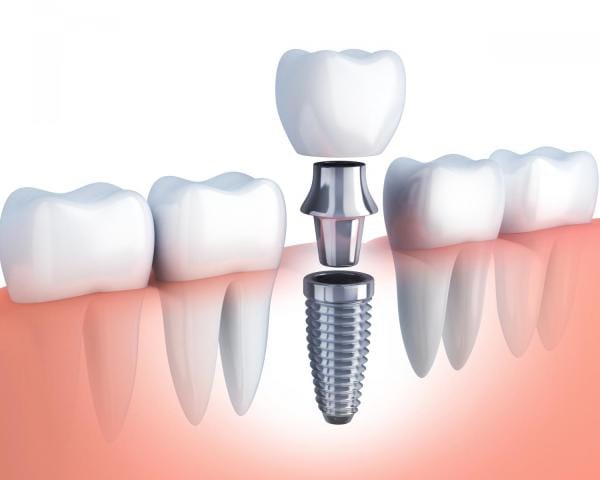Your Guide to Dental Implants: What You Need to Know
Your Guide to Dental Implants: What You Need to Know
When it comes to restoring your smile and regaining confidence, dental implants are often the gold standard in modern dentistry.
Posted by
Jodie Claridge DipOT RDN GDC: 220600
Medically Reviewed by
Dr Ahmed Farooq Restorative Specialist & Implant Surgeon BMEDSci. BDS Bham 2007 RCS (Eng) Rest GDC: 150307

When it comes to restoring your smile and regaining confidence, dental implants are often the gold standard in modern dentistry. But for many, the idea of dental implants can seem a bit intimidating. This guide will answer all your most pressing questions, demystify the process, and help you understand why dental implants might be the perfect solution for you.
What Are Dental Implants?
Dental implants are small, screw-like fixtures made of titanium or zirconia that act as artificial tooth roots. They’re placed into your jawbone to support a replacement tooth (or teeth), such as crowns, bridges, or dentures. Over time, the implant integrates with your bone, creating a sturdy and long-lasting foundation for your new tooth.
Am I a Good Candidate for Dental Implants?
Most people are suitable candidates for dental implants, but some factors can influence the success of the treatment:
- Bone Density: You need enough healthy jawbone to support the implant. If your bone has shrunk, a graft may be required.
- Overall Health: Chronic conditions like diabetes or habits like smoking can affect healing.
- Existing Infection: If an infected tooth is removed, it is likely that a period of healing will be required prior to reassessment and placement.
- Oral Health: Healthy gums are essential for successful implants.
Mr Farooq will evaluate your individual situation with X-rays and possibly 3D scans to determine your suitability.
What Is the Procedure Like?
The implant process usually involves several stages over a few months:
- Consultation & Planning: Mr Farooq will assess your needs and create a tailored treatment plan.
- Implant Placement: The implant is surgically placed into your jawbone. This is usually done under local anaesthetic and is a surprisingly comfortable procedure. This is either done at the same time as the extraction, or at a separate appointment,.
- Healing (Osseointegration): Over the next 3-6 months, the implant integrates with your bone, creating a strong foundation.
- Bruising: It is not uncommon for for the surrounding soft tissues to have a degree of bruising. This largely varies from person to person with those who bruise easily more likely to have bruising.
- Restoration: Once healed, a crown, bridge, or denture is attached to the implant, completing your new smile.
Does It Hurt?
Thanks to modern techniques and aesthetics, discomfort during the procedure is minimal. Most patients report mild soreness afterward, similar to what you might feel after a routine extraction. Over-the-counter pain relief is usually sufficient.
How Long Do Dental Implants Last?
With good oral hygiene and regular dental visits, dental implants can last 10-15 years.
